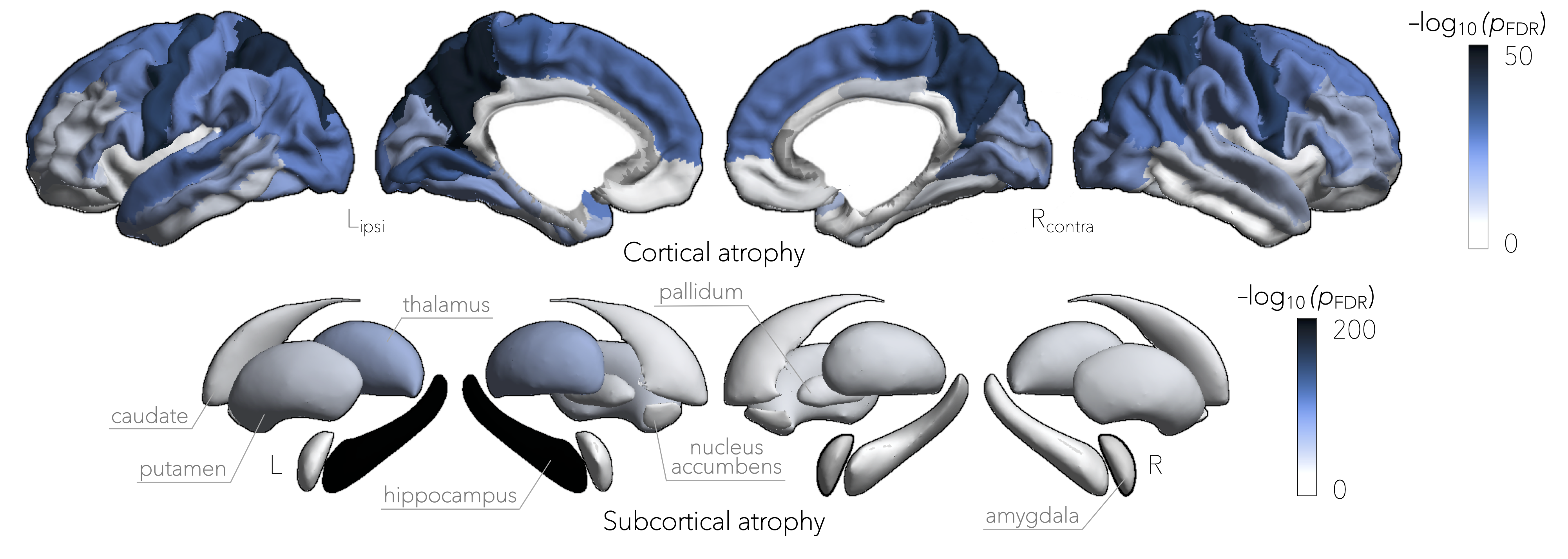The ENIGMA TOOLBOX is an open source repository for the sharing of neuroimaging and genetics data, analytical codes, and visualization tools that are 100% ENIGMA-friendly and -focused.
Did you find a bug? Or do you have any problems, questions, or suggestions about the ENIGMA TOOLBOX? Please do not hesitate to get in touch with us on our Github issues! If you are interested in collaborating or sharing your ENIGMA-related codes/tools (noice!), make sure you familiarize yourself with our contributing guidelines first and then discuss your ideas on our Github issues and pull request pull request.
Some scripts and analyses have been used in a previous ENIGMA publication. Make sure you check it out!
- Network modeling, hub susceptibility, and epicenter mapping in epilepsy
- Larivière S, Rodríguez-Cruces, Royer J, ..., Whelan CD, Thompson PM, Sisodiya SM, Bernasconi A, Labate A, McDonald CR, Bernasconi N, Bernhardt BC (2020). Network-based atrophy modelling in the common epilepsies: a worldwide ENIGMA study, bioRxiv.
- Sara Larivière, MICA Lab - Montreal Neurological Institute
- Raúl Rodríguez-Cruces, MICA Lab - Montreal Neurological Institute
- Bo-Yong Park, MICA Lab - Montreal Neurological Institute
- Oualid Benkarim, MICA Lab - Montreal Neurological Institute
- Jessica Royer, MICA Lab - Montreal Neurological Institute
- Boris Bernhardt, MICA Lab - Montreal Neurological Institute
